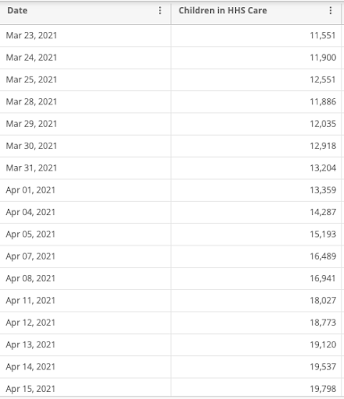What is the best vaccine against Covid?
It is a question many are asking.
Which vaccine is the most effective in protecting you, working against further transmission and limiting any near-term or long-term side effects?
Pfizer? Moderna? Johnson and Johnson (Janssen)? AstraZeneca?
This question has taken on further importance as more concerns have been raised about possible side effects in the vaccines.
AstraZeneca's vaccine has still not been authorized for use in the United States. Various European countries have paused its use after concerns about blood clots developing in those who have been vaccinated.
The FDA in the United States paused the use of the J&J vaccine for similar concerns, in particular for women under the age of 50. The pause has now been lifted with new warnings about the risks of blood clots, particularly for younger women.
You may recall that I warned about the advisability of anyone under the age of 50 being vaccinated against Covid (particularly women) back in January when I saw the early VAERS reports on adverse effects.
I am personally troubled by the deaths reported in the age 25-50 age group. Does the potential benefit of the vaccine outweigh the cost for this group considering the low Covid death rate for these ages?
I think the breakdowns by sex for the adverse events that have been reported to VAERS for hospitalizations and ER/urgent care visits is very interesting.
Are the vaccines creating greater side effects on females than males? These are very heavily skewed towards females for some reason.
Looking at the data, I would have a hard time recommending anyone under age 50 take the vaccine right now. This seems even more true for females. I just don't see the benefits outweighing the potential costs.
Recall as well that this was at a time when the only vaccines that were being utilized were Pfizer and Moderna. J&J's had not been authorized at that time.
Since there is a known blood clot problem with the J&J and AstraZeneca vaccines might there also be one with the two mRNA vaccines that is not being publicized?
The VAERS data indicates that this might also be the case with the Pfizer and Moderna vaccines as well.
These are the adverse events related to blood clots and strokes the vaccines by each manufacturer through April 16, 2020.
 |
| Source: https://www.openvaers.com/covid-data/covid-coagulopathy-stats |
As you can see, blood clot and stroke issues are in no way exclusively an issue with the J&J vaccine in the United States. However, the per capita incidence of these issues with the two mRNA vaccines is lower in that Pfizer and Moderna have been utilized far more in the United States.
However, even taking this into account, Andrew Bostom an academic internist and epidemiologist has concluded that that the risks of the vaccines do not warrant mass vaccination of those under age 50.
This is a chart that Bostom prepared detailing the risks and benefits of the J&J, Pfizer and Moderna vaccines based on the CDC's own models.
 |
| Source: https://twitter.com/andrewbostom/status/1386766768321011723/photo/1 |
Note that the J&J/Janssen vaccine is projected to cause 21 deaths in order to prevent 44 Covid deaths.
That is a horrendous mortality trade-off.
The Pfizer and Moderna vaccines are better but you still are going to have 1 death from the vaccine for every 5 that are prevented in the age 50 and younger population with mass vaccinations.
I don't know that any other vaccines in human history have had a mortality trade-off that was worse.
From an ethical perspective I don't know what a reasonable mortality trade-off would be but I know it shouldn't be 1 in 2 or 1 in 5. After all, a vaccination is an act of commission and medical ethics suggests that the first rule should be "do no harm."
When you look at these numbers you also see how ethically dubious it is for anyone to suggest that children should be vaccinated against a disease of which they have very little risk of becoming seriously ill or dying.
What makes even less sense is the push to vaccinate those that have already had Covid and are carrying antibodies against the virus.
When in human history has it ever been suggested that you should be vaccinated against a disease that you have recently recovered from? Why should any of these people be subject to any risks of the vaccine when they already have antibodies against the virus?
It defies all reason and logic.
In case I was missing something I recently asked a physician who trained in Rheumatology and Immunology if there was any reason why someone who had recovered from Covid should get the vaccine?
This is what he told me.
"Vaccinating someone that has already had the illness not only is useless at best but exceedingly dangerous at worst."
The conclusion that vaccinating a recovered person is useless seems to be supported by a recent Israeli study that questioned the need to vaccinate anyone who had previously been infected with Covid.
This research must be one of the reasons that Israel, as a matter of national public policy, is not vaccinating anyone who has recovered from Covid, despite having the most robust vaccination program for its citizens in the entire world.
The Israeli study found that the Pfizer vaccine (which is being exclusively used in Israel) had an estimated overall efficacy for documented infection of 92.8% and for severe illness of 94.4%.
However, those who had previously had Covid has an overall efficacy of documented infection of 94.8% and for severe illness of 96.4%.
This suggests that the best vaccine is your natural immune system. It will convey better immunity than any vaccine.
Of course, to get that level of protection it requires you to contract the disease.
The point of a vaccine is to convey that benefit without having to suffer the ill effects of the virus.
However, with these vaccines many are having strong adverse ill-effects after receiving the doses such that the CDC recently reported that millions of people are not showing up for their second dose of the mRNA vaccines.
The New York Times reports that nearly 8% of the people who've so far received their first dose of either the Pfizer or Moderna vaccines have missed their follow-up appointments to receive the second dose.
There are several reasons a growing number of Americans are choosing not to receive the second dose, the Times reported. Some have said they don't want to experience any potential side effects while others feel like one dose should be enough protection against the virus.
I still find it interesting that there seems to be a natural barrier of immunity to Covid in most large populations of healthy individuals wherein 80% of those exposed will not get infected.
We saw this on the Diamond Princess. the USS Teddy Roosevelt and in the household studies around the world that found that only about 17% of those in households with a symptomatic Covid case later developed the infection themselves.
In other words, taking the vaccine might not increase your protection from 0% to 93% (the Israeli study). It might only be giving you additional protection from 80% to 93%.
However, as to the adverse effects from the vaccine, you are really going from a 0% risk to something else altogether that you would never have faced otherwise but for taking the vaccine.
If you were previously infected, the Israeli study suggests there is no additional benefit from the vaccine weighed against any potential short and long-term side effects that might come with the vaccine.
The bottom line is that our natural immune system is the best vaccine if it is working properly.
It certainly provides the least risk.
For many it provides much more protection from Covid than they might otherwise realize.
I fervently hope that the Covid vaccines live up to all that they promise. Some of the early data was mixed but we are seeing positive trends in the most vulnerable populations in particular. Let us hope that these trends continue for the older age groups which seem to be having fewer adverse effects than younger age groups.
As I have written previously, I have no argument with anyone over 50, who has not been previously infected, from making the choice to vaccinate. It is a reasonable personal choice as long as it is an informed choice knowing these are not approved vaccines but are merely authorized for emergency use. at this time. They will not be fully approved for at least two more years.
The benefit to risk profile of the vaccine is much more advantageous the older you are.
I cannot say the same for most of those under age 50 when I consider the data.
For example, here is the latest VAERS report on ER/Urgent Care visits by age following vaccination.
 |
Source: https://www.openvaers.com/covid-data
Thru April 16, 2021 |
Is it not cause for concern that there are many more adverse events for those under age 50 than over age 50 when the risk profile from Covid for this younger age group is so much lower? To date, there have also been many more vaccines doses administered to those over age 50 than for those under that age.
This younger group in particular may need to have a better understanding that the best vaccine for them might be the one God provided.















































